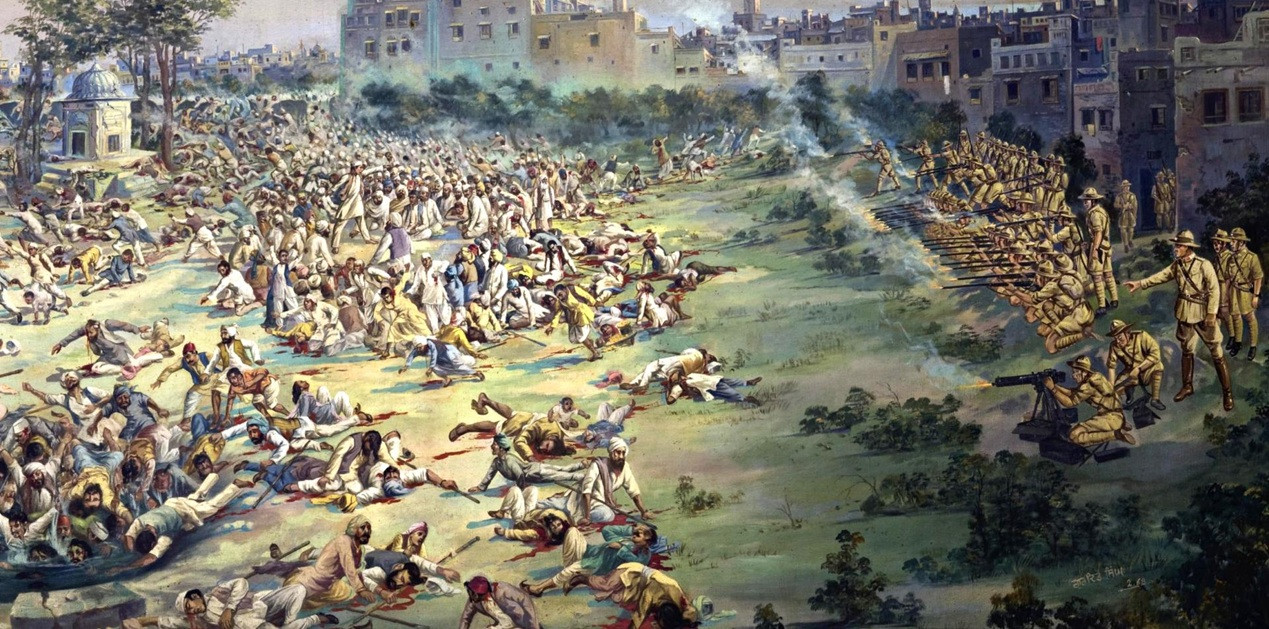What Was the Jallianwala Bagh Massacre?
The Jallianwala Bagh Massacre, also known as the Amritsar Massacre, occurred on April 13, 1919, when British troops under the command of Brigadier-General Reginald Dyer opened fire on a peaceful gathering of unarmed civilians in Jallianwala Bagh, Amritsar, Punjab. The incident resulted in hundreds of deaths and over a thousand injuries, becoming one of the most brutal episodes of British colonial rule in India.
Historical Context
In the aftermath of World War I, Indians were hoping for greater political freedoms and reforms. However, the British government passed the repressive Rowlatt Acts in 1919, which allowed authorities to imprison individuals suspected of sedition without trial. This sparked widespread protests across India.
In Punjab, the situation was particularly tense. Local leaders like Dr. Saifuddin Kitchlew and Dr. Satyapal were arrested, leading to mass demonstrations in Amritsar. The British administration imposed martial law and banned public meetings.
The Day of the Massacre: April 13, 1919
April 13 was the Punjabi festival of Baisakhi, a day when people traditionally gathered to celebrate the harvest season. Many had also come to attend a peaceful meeting organized by local leaders to protest the arrest of their leaders and the repressive Rowlatt Acts.
Several thousands of people had assembled in Jallianwala Bagh, an enclosed park with high walls and only narrow entrances. In the late afternoon, General Dyer arrived with soldiers drawn from several regiments (around 50 or more) and, without warning, ordered his troops to open fire on the crowd. The firing lasted for about 10 minutes, during which approximately 1,650 rounds were discharged until ammunition was nearly exhausted.
The narrow exits were blocked, and many people jumped into a well to escape the bullets. The official British inquiry later recorded 379 deaths and about 1,200 wounded, though Indian sources estimated the toll to be over 1,000. More recent studies suggest the actual number of dead may have been around 500–600.
General Dyer's Justification
General Dyer later defended his actions, claiming he wanted to "produce a moral effect" and teach the locals a lesson. He stated that his goal was to instill fear and prevent further rebellion. However, his actions were widely condemned both in India and Britain. While some groups in Britain supported him, many leaders, intellectuals, and politicians strongly criticized the massacre.
Immediate Aftermath and Reactions
The massacre sent shockwaves across India and the world. Prominent leaders like Rabindranath Tagore renounced their British titles in protest. Mahatma Gandhi, who had previously supported the British war effort, became convinced that India could not expect justice from the colonial government.
The Hunter Commission was established to investigate the incident. While it censured Dyer for failing to give warning and for excessive force, it did not deliver justice to the victims. General Dyer was relieved of his command and forced to retire, but he faced no trial. In fact, he received support from certain groups in Britain, who raised funds in his honor.
Impact on India's Freedom Movement
The Jallianwala Bagh Massacre marked a turning point in India's struggle for independence:
- It shattered the myth of British benevolence and exposed the brutal nature of colonial rule
- It galvanized the national movement and brought leaders like Gandhi to the forefront
- It led to the launch of the Non-Cooperation Movement in 1920
- It united Indians across regions and communities against British rule
Legacy and Remembrance
Today, Jallianwala Bagh stands as a national memorial, preserving the memory of those who lost their lives. The site includes a museum with artifacts, photographs, and accounts of the massacre. Every year on April 13, the tragedy is commemorated with solemn ceremonies.
The massacre remains a powerful reminder of the sacrifices made by ordinary people in the fight for freedom. It continues to symbolize the resilience of the human spirit against oppression and injustice.
Conclusion
The Jallianwala Bagh Massacre was not just an incident of violence—it was a defining moment that shaped India's destiny. It awakened the nation's conscience and demonstrated that freedom could not be granted but had to be won through the collective will of the people. Remembering this tragedy ensures that such atrocities are never repeated and that the value of human dignity is never compromised.



